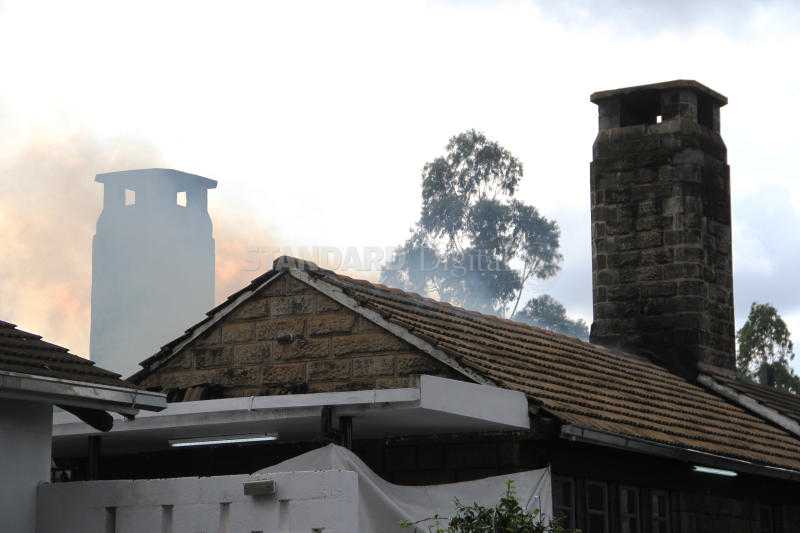×
The Standard e-Paper
Home To Bold Columnists

A few minutes after 2pm Friday, a strong and invasive smell of diesel permeated the cold and humid air at the Lang’ata Crematorium, quickly spreading across the cemetery and then beyond the bounds of the fence.
Minutes later, a moderately thick whirl of grey smoke lazily billowed through the towering grey brick chimney, signalling the start of the slow six to seven-hour process of interring the remains of the late Kenneth Matiba.